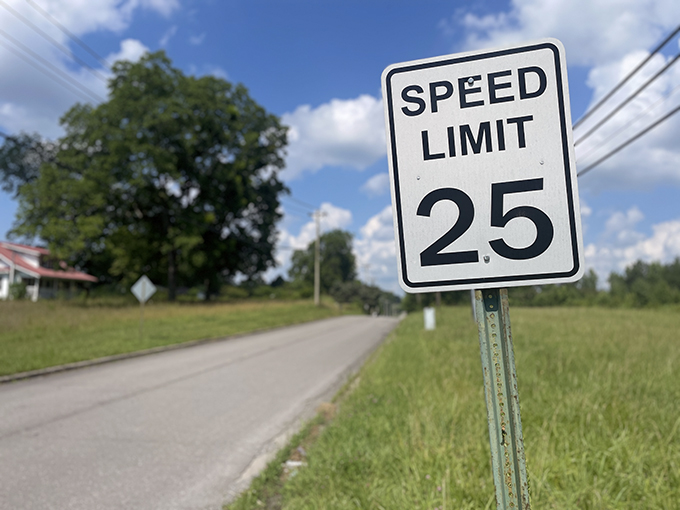Senate health plan on tightrope
Published 2:51 pm Friday, June 23, 2017
WASHINGTON — Opposition by unified Senate Democrats and a handful of Republicans to the GOP leadership’s health care plan could doom it unless horse-trading changes occur before an up-or-down vote.
That’s the Senate landscape in the aftermath of Majority Leader Mitch McConnell and a small cohort of Republican senators on Thursday disclosing their 142-page draft bill to repeal and replace the seven-year-old Affordable Care Act known commonly as Obamacare.
At least four conservative Republican senators announced their opposition without more drastic changes to Obamacare, especially in subsidies offered lower-income individuals to buy health insurance. A few GOP moderates also have expressed the reverse concern that it is too heartless.
Senate Democrats, who thus far have stood solid against Republican health care legislation, assailed the latest iteration, saying it would cripple Medicaid programs that have provided insurance coverage for the first time to millions of Americans.
McConnell said he wants a vote on the Senate bill before the end of next week, when Congress departs Washington for the long Fourth of July recess. He and others can make changes to the measure behind closed doors and during the open Senate debate.
But it will require tightrope balance changes to satisfy both conservative and moderate GOP senators. Republicans hold 52 Senate seats, and they need 50 votes to pass the bill, with Vice President Mike Pence breaking the tie.
There’s little chance McConnell can count on any Democrats for support even though some agree Obamacare needs to be fixed to address insurance market instability and bring down coverage costs. But they do not agree with McConnell’s premise that Obamacare is a disaster and Americans urgently want to repeal and replace it.
Democrat Sen. Joe Manchin of West Virginia, where thousands of individuals rely on Medicaid, said the Senate bill is as bad a deal for his state as the Republican House bill that won narrow approval in May and which public opinion polls show is unpopular with the public.
“It maintains severe cuts to Medicaid, raises costs for seniors, and denies access to coverage for those who desperately need substance abuse treatment,” said Manchin.
The Senate bill rolls back and eventually eliminates federal money that helps millions of low-income adults buy insurance through Obamacare’s expansion of Medicaid. It also sets a cap in the future on reimbursing states for traditional Medicaid assistance to seriously sick and disabled poor adults and children.
Sen. Bob Casey, D-Pa., said in a statement the bill “decimates Medicaid, which provides health care for over 722,000 Pennsylvanians with a disability and 1.1 million children.” He said it also means people addicted to opioids would no longer be able to get treatment, worsening what is already an epidemic crisis.
Sen. Joe Donnelly, D-Ind., criticized Republicans for coming up with the draft bill after weeks of secret discussions involving only a few GOP senators and then planning to rush it through the Senate without a single public hearing on the details.
“The stakes are incredibly high,” said Donnelly. “This is about the health, well-being, and economic security of families, children and adults with disabilities, and older Hoosiers.”
The other senator from Indiana, Republican Todd Young, said Congress has no choice but to replace Obamacare because it “has failed Hoosiers as prices have skyrocketed, insurers have left the marketplace, leaving severely limited choices, and deductibles have risen to a level where some insurance is useless.”
Seven Republican and Democrat governors signed a letter last week to McConnell and other Senators urging them to be kinder than the cuts proposed in the House bill to Medicaid funding. The group included governors from Ohio, Pennsylvania and Massachusetts.
But that plea fell on deaf ears as the Senate bill cuts deeper into Medicaid programs than the House measure.
A spokesman for GOP Gov. Charlie Baker of Massachusetts, Liz Guyton, said the Senate proposal “falls short” of preserving that state’s ability to provide quality health care by significantly reducing federal funds.
Republican Sen. Chuck Grassley of Iowa saw it differently. He defended slowing the growth in Medicaid spending during a call with reporters Wednesday. He said capping federal reimbursements would fix a system that now has “an open checking account” for any amount.
“We’ve come to the conclusion that’s not a very fiscally responsible way of doing things,” he said.
Sen. Joni Erns, R-Iowa, said she’s still studying the details of the Senate bill, but “the reality in Iowa is that continuing the status quo simply isn’t an option because Obamacare is unsustainable.”
Other contested elements of the Senate health care plan, all of which are subject to change before a final vote is taken:
- Preserves insurance coverage of pre-existing conditions, but allows states to eliminate the requirement insurers cover essential medical needs such as mental health treatment, maternity care and emergency room services.
- Smaller subsidies than Obamacare for need-based help to low-income individuals so they can buy insurance. The subsidies are based on age, gender and geography.
- Eliminates the mandate that individuals buy health insurance or pay a penalty. The concern is healthy people won’t buy insurance until they get sick, causing insurance rates to keep climbing.
- Prevents Medicaid recipients from accessing health care at Planned Parenthood clinics for one year, and bans individuals who get federal subsidies from purchasing insurance plans that include abortion coverage.
- Repeals most of the tax increases imposed by Obamacare to pay for expanded health care to Americans.
Contact CNHI Washington reporter Kery Murakami at kmurakami@cnhi.com.





